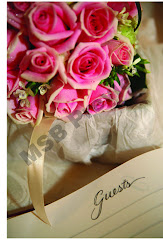Every way in which you interact with a reader, potential reader, or person by their commentary might lead to a reader, has a purpose.
The book title, by announcing your work, calls out for acclaim. The size of the book and the weight of the paper make statements about the type, style and seriousness of the work. The brightness (whiteness) of the paper force people to draw certain conclusions about the work it contains. Even the type size and style create illusions and impressions.
None of those make much difference if your cover does not do it's job.
Seth Godin, in his blog, makes several good points for consideration. Remember You are the final arbiter of Your work. You decide if the work is ready to go to print. You decide the seriousness of the paper, size, type and style, then you decide what the cover should communicate. Others participate by suggestion and professional input but it is your baby and your decision.
Make it a good one.
http://sethgodin.typepad.com/seths_blog/2009/07/the-purpose-of-a-book-cover.html
The purpose of a book cover
(and I think it works for lots of products)
Is the purpose of the cover to sell books, to accurately describe what's in the book, or to tee up the reader so the book has maximum impact?
The third.
It's the third because if the book has maximum impact, then word of mouth is created, and word of mouth is what sells your product, not the cover.
Tactically, the cover sells the back cover, the back cover sells the flap and by then you've sold the book. If those steps end up selling a book that the purchaser doesn't like, game over. So you have to be consistent all the way through and end up creating a conversation after the purchase. Books are better at creating conversations than most products (when was the last time you talked about a pool cue), but there's lots of opportunity here, no matter what you make.
Some ways that a book cover can accomplish its mission:
* Iconic (because iconic items tend to signal 'important')
* Noticeable across the room (you see that lots of other people own it, thus making it likely that you'll want to know why)
* Sophisticated (because this helps reinforce that the ideas inside are worthy of your time)
* Original (why bother reading a book you already know)
* Clever
* Funny
* Generic (reminding you of a genre or another book you liked, not generic as in boring)
I don't know about you, but I judge books by their cover every day.
What To Do with Strange Experiences
5 days ago








No comments:
Post a Comment